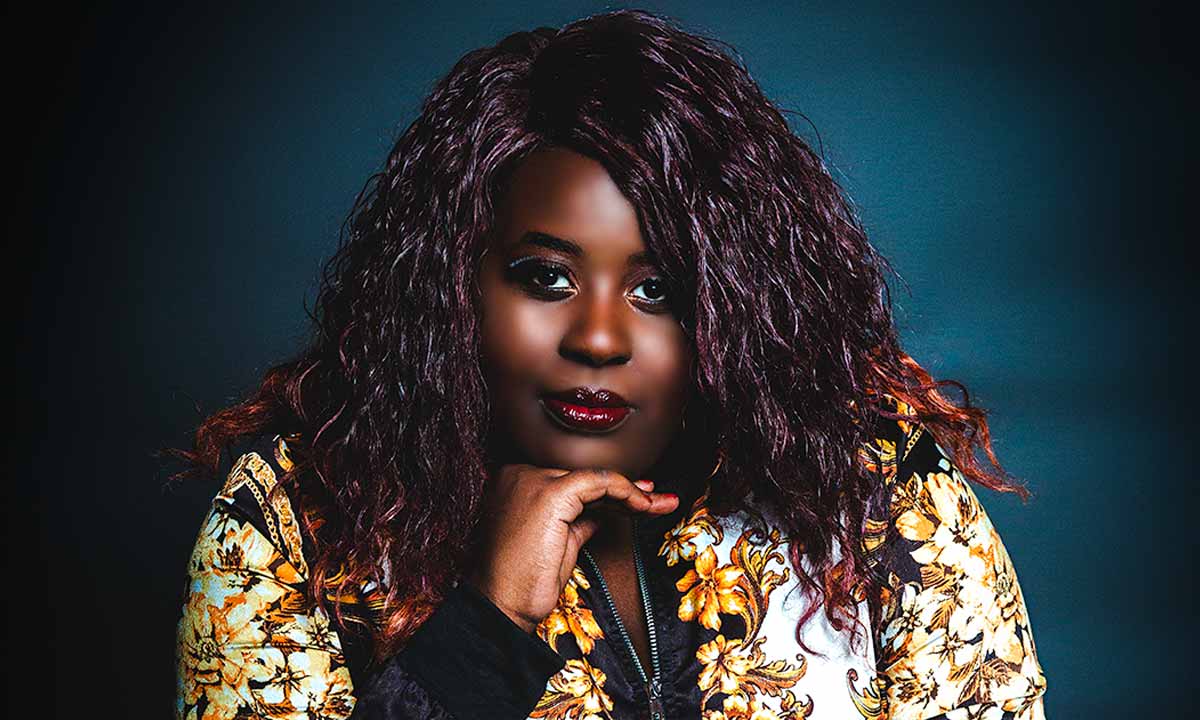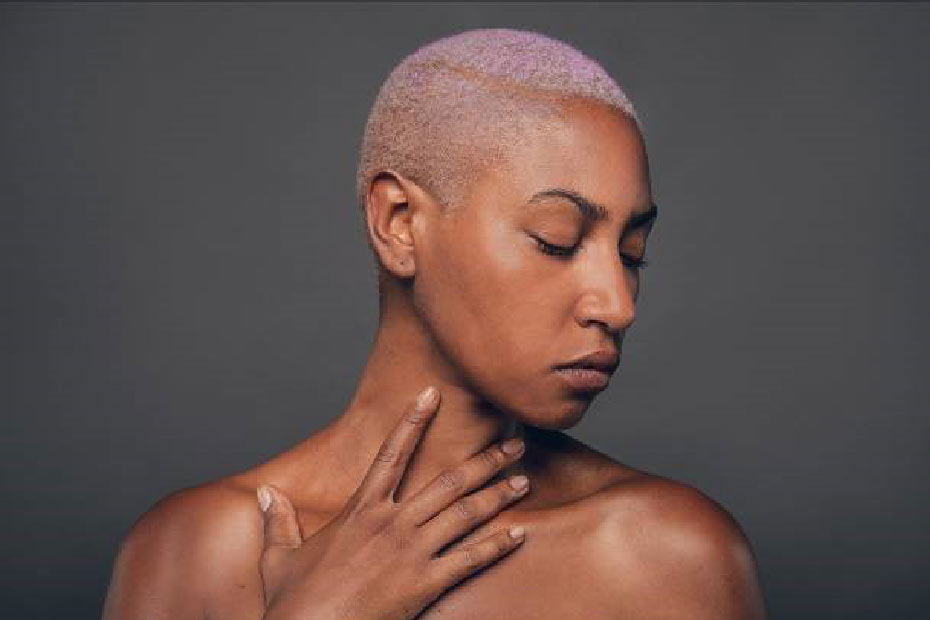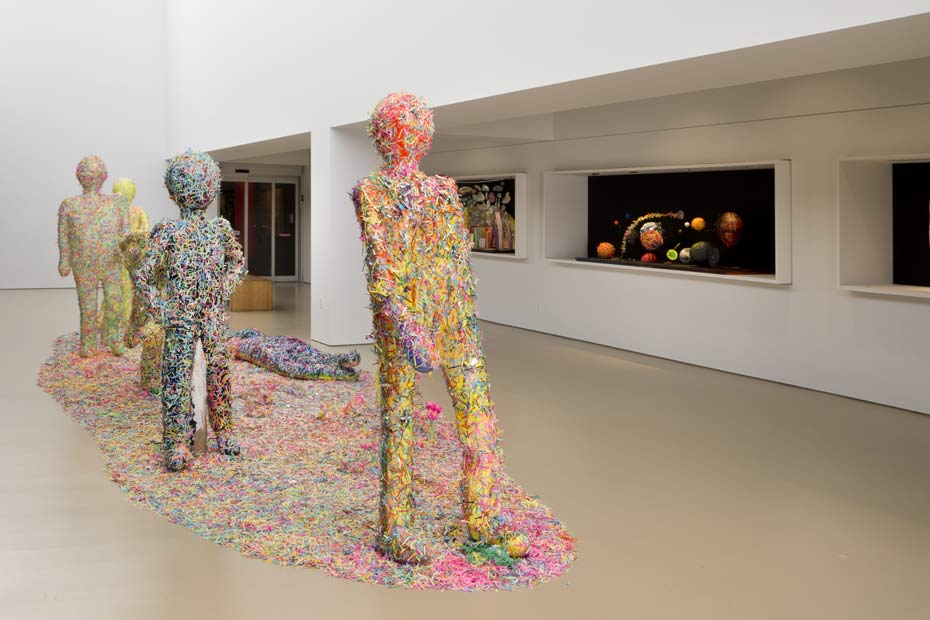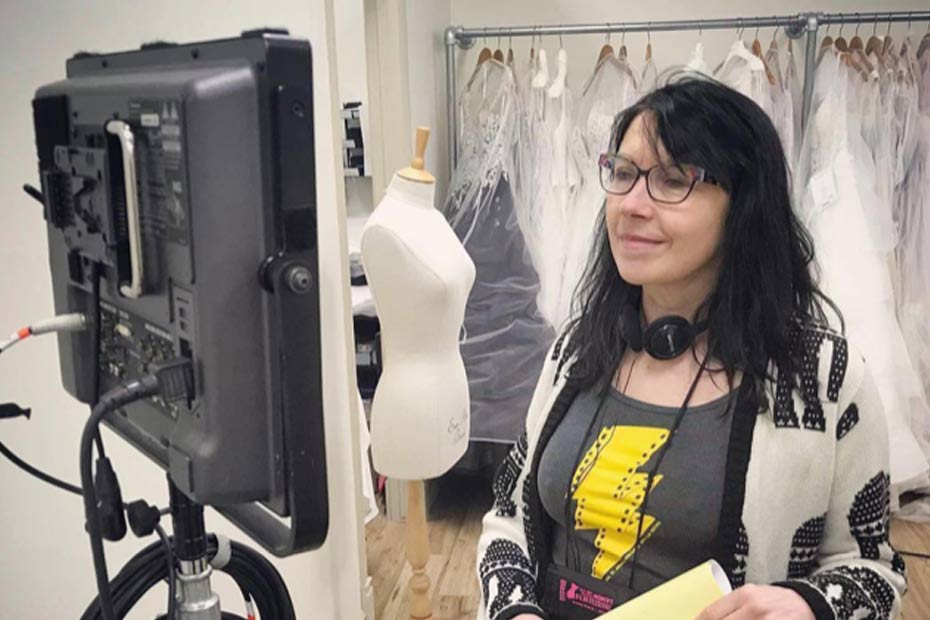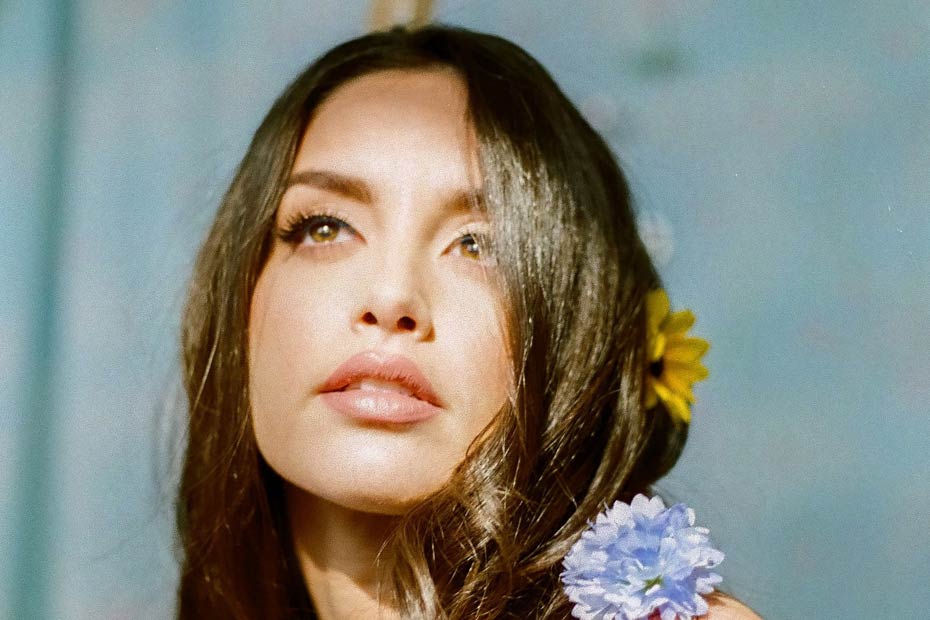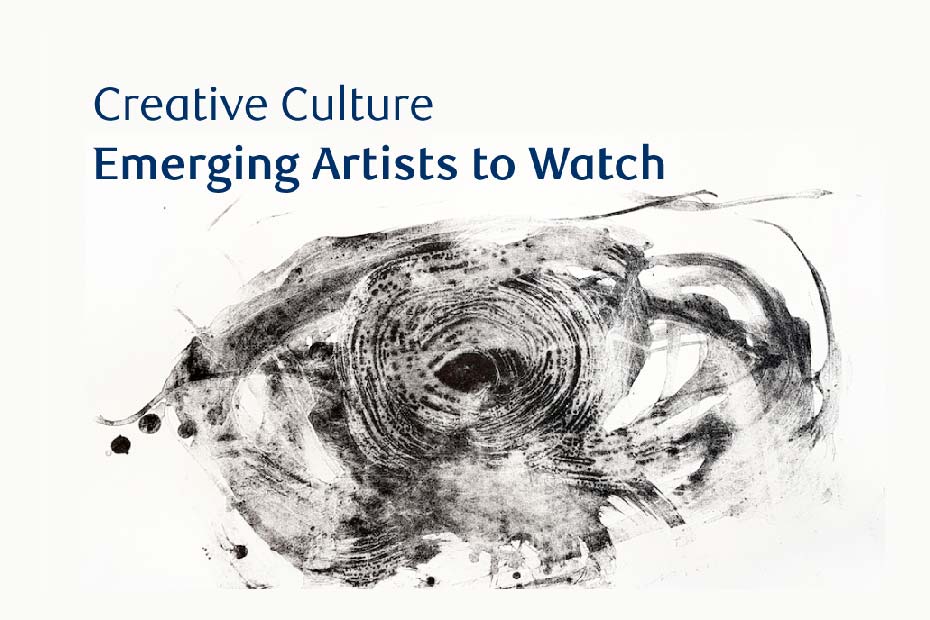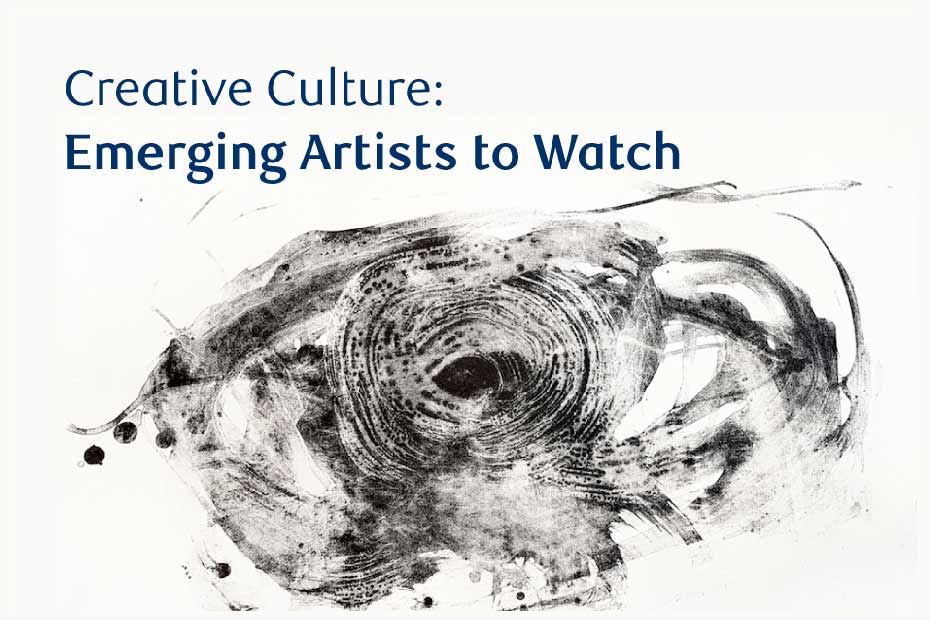Image courtesy: David Markwei Productions
Canada’s emerging artists contribute to the fabric and strength of communities. “Creative Culture: Emerging Artists to Watch” is a new series profiling young Canadian artists as they begin to grow from emerging to established.
Yes, mamas, papas and music lovers anywhere, Vancouver’s Missy D is the real deal.
“Yes Mama” also happens to be the name of the latest album from the Vancouver-based bilingual hip-hop, rap and soul artist and femcee (female MC). And as if being a young, Black, female hip-hop artist trying to break through the music industry wasn’t challenging enough, “Yes Mama” debuted in March at the start of the global pandemic.
“Yes Mama,” and her recent standalone single “Making Moves,” released as a response to the pandemic, show the depth of talent this emerging artist brings to her music.
Missy D says “Yes Mama” is all about grief — from acknowledging it, processing it, and rising above it . Yet the tracks on this new album vary between powerful, fast-driving rhythms supporting Missy D’s rapping prowess, and soulful melodies with introspective lyrics.
Here, Missy D uses the title tracks of “Yes Mama” to explore themes that resonate with diverse audiences: race, equality and emotional resilience in the face of constant change. Themes that have been inspired by her personal experiences — adapting to new cultures, paving a path in a typically male-dominated rap community and overcoming the loss of her father.
“Melanin” (Track 5)
Beauty in your brown / beauty in your black / beauty in your worth / beauty in your smile Beauty in your voice / beauty in your hair / beauty in your curls / beauty in your eyes Beauty in your Melanin beauty …
Born in Rwanda, and spending time in Cote d’Ivoire and Zimbabwe, it was in Vancouver where Missy D began performing regularly in front of audiences. “Melanin” she says is an ode to her roots and African heritage highlighting how the experiences she lives as a youth growing up on the continent stayed with her and are embedded in who she is as a person and as a performer.
Earning a Bachelor of Science from the University of British Columbia, she performed regularly on campus throughout her academic career.
“I wrote a letter to my dad after I got my degree telling him I didn’t want to be a doctor. I told him I am paying my rent, you don’t need to worry, but I want to make an album. My dad finally understood and said to me, ‘maybe this is your thing.'”
The confident, engaging artist she is today wasn’t evident in her early years. Teachers noticed her shy reluctance to speak in class and would call her up to participate to help break her out of her shell. Eventually, Missy D found her confidence though. “Deep down I think I am an introvert,” she laughs.
“You” (Track 2)
See me smiling / but don’t get comfortable / you … you
'I've always been a minority' MissyD shares, 'even in my early days in the rap scene, although the performers were all, or mostly, black I was pretty much the only 'rapper girl'.
The “you” in the song is universal — because while generally happy and optimistic, she does get angry. “You” became a response to any and all elements a young, female, Black artist might have to deal with — exes, promoters/event producers who don’t pay artists enough, people who called her names, COVID-19, social injustice.
“When I perform “You,” it depends on my mood, who or what the ‘you’ is at that moment. The rhymes are simple and the chorus is simple, but it can hold and speak to different facets.”
Supporting other artists is what Missy D hopes to continue to see in artist communities, “I don’t want it just to be, ‘We have to have a black female artist — check!’
“Au Revoir” (Track 3)
Counting days / counting stars / counting songs / here is yours / I don’t know how to say goodbye …
The loss of her father in late 2019 resulted in aperiod of intense grief for Missy D, which delayed the release of “Yes Mama.” In the track “Au Revoir,” this grief can be heard through the soulful, lyrical rap. Her father had played such a pivotal role in her life overall and most recently in her decision to pursue music. It was his acknowledgement of her talent that ultimately gave her the push she needed to walk away from a potential future in medical school to focus on music, full-time.
The album’s drop date had been scheduled for May of 2019, but was released on March 20, 2020. “I didn’t have the motivation to finish the album,” she recalls. “Au Revoir” is about her father, but it also explores adulthood, inter-generational pain, and the pain families go through in general.
“Watch Me” (Track 6)
Highly melanin-ated / Racism is here and I ain’t jaded /I carry their pain, time to reawaken / Ancestors called and I’m responding.
Speaking up about racial inequality is a frequent theme in Missy D’s music. The song “Watch Me” is a sharp and powerful comment expressing her intentions when speaking up against discrimination.
“I feel I am becoming one of the voices of Black women in Vancouver, and that can be overwhelming, but we all have to go through hurdles. With everything that is happening in the U.S. and Canada, I am still rising. I don’t care if the odds are against us,” she says.
“Paint” (Track 1)
“I don’t think you understand / That my pain is your pain and I paint, I paint it again … All the empathy that I am feeling / got me bottled up, sponged up Saved by this hip-hop / when music hits you feel no pain.
In “Paint,” one of the most personal tracks on “Yes Mama,” Missy D talks about how creativity can help manage the pain that comes with life. For example, the pandemic has changed how she shares her music, as well as jeopardizing the future dream of touring to places like Japan, Johannesburg, and Brazil.
To support other emerging artists, she hopes one day to build a music studio to collaborate with others. “When artists cultivate each other, everyone sees it. When you shine the light on me, it reflects back on you, on all of us.”
Missy D participated in First Up with RBCxMusic this summer. This program launched in May to support and promote emerging Canadian musicians and recording artists impacted by the COVID-19 pandemic. You can see her First Up virtual performance on IGTV here.
“Yes Mama” (Track 4)
See, I gotta sing it for the motherland / so that they really, really understand. I hope my ma is listening / we celebrating your wisdom / singing yes mama, yes mama.
The title track from the EP, performed in French and English, is upbeat and energetic. The song honours the many forms motherhood can take and the video for the song shows a rapid montage of various women FaceTiming. It’s a celebration not only of mothers and community matriarchs, but also motherly nurturing. The video ends with a photo of Missy D as an infant in the arms of her father.
She lives this too through her expressions of support for her artist community, those she currently collaborates with (Kimmortal and Lady Jams among others) and her hopes to help develop new artists in the future. Celebrating the beauty of all artists and wanting to nurture all of them? Yes, that certainly sounds like a Mama.
Find out about how RBC supports Emerging Artists.
More from the Creative Culture: Emerging Artists to Watch:
This article is intended as general information only and is not to be relied upon as constituting legal, financial or other professional advice. A professional advisor should be consulted regarding your specific situation. Information presented is believed to be factual and up-to-date but we do not guarantee its accuracy and it should not be regarded as a complete analysis of the subjects discussed. All expressions of opinion reflect the judgment of the authors as of the date of publication and are subject to change. No endorsement of any third parties or their advice, opinions, information, products or services is expressly given or implied by Royal Bank of Canada or any of its affiliates.








